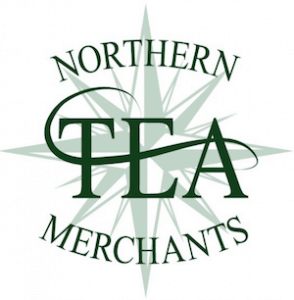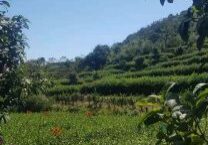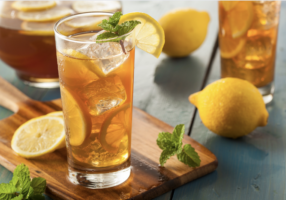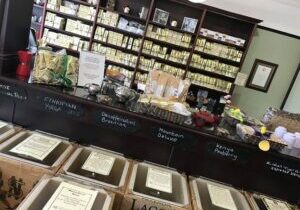Unfortunately change doesn’t happen overnight, particularly when it comes to sustainability and going ‘green’ in business…but it’s a journey which is well under way.
In the tea and coffee industry, achieving true sustainability with packaging is a lot more than saying we have introduced plastic free tea bags. If only it were that simple (which it isn’t!) In fact it is something that has taken up a great deal of my time and thought, particularly over the last 12 months.
As part of my research, I have been drawing on expertise and advice from Chesterfield Borough Council and Derbyshire County Council, our various packaging manufacturers and Nottingham University (all of whom I wish to extend my thanks).
After extensive research, I have identified our first goal of becoming more sustainable starts with the packaging we use at Northern Tea Merchants; any potential replacements if necessary and to keep updated on the science that I need to make informed business decisions.
The first of these decisions was recyclable vs. biodegradable.
As a ‘rule of thumb’, oil-based plastics are not biodegradable, bioplastics are. A bioplastic is made using vegetable-based polymers, but these can cause issues with the longevity of the barrier it provides to its contents. To give you an example, the acidity of the Bergamot oil used to flavour Northern Tea Merchant’s Earl Grey Tea will slightly degrade bioplastic. This results in the packaging splitting or becoming weak. Not something that we want at all!
Also, Bioplastics do not perform as well when they are being printed/coloured and for the first time ever the food industry is having to deal with packaging that only has a slightly longer shelf-life than the food it is designed to contain.
Bioplastics also require specialist industrial composting as the temperatures achieved in a domestic compost heap are simply not high enough to start the biodegradation process. This means you must dispose of them using a supermarket waste recycling scheme (not your green bin at home).
During my research I was horrified to find out that if one were to put a compostable bioplastic bag into a domestic plastic recycling bin, this would severely contaminate the whole recyclable plastic waste stream for that bin. Another fact people are often surprised to learn is that any type of black ‘technically recyclable’ plastic cannot actually be recycled.
Despite this issue with plastic, we are making considerable progress on our journey to being a business with 100% sustainable packaging.
We have already made the switch on our tea bag paper and sealing tape and sourced alternatives for coffee bean and ground coffee packaging (that contains a gas equalising valve which must also be recyclable) so we can switch quickly to more sustainable packaging once existing stocks are used up.
We are also in the process of making other changes as you can see from the table below which shows where we are today with our packaging, broken down by product type:
Recycling information for Northern Tea Merchants products (Updated March 2023)
We will update the table as we change our remaining laminate packaging (namely our coffee pouches and leaf tea packaging). We have quite large stocks of leaf tea packaging that will likely last us some considerable time, but we have already decided what we will replace these with. One thing we will not do is to send them to landfill!
It seems that, on occasion, sustainability aspirations are further ahead than the actual science and physical logistics of recycling. Finding a way forwards for a small business with a finite budget does not put us in a position to be innovators. To counter this, Northern Tea Merchants has embraced the Waste and Resources Action Programme (WRAP) guidelines as have many large organisations. WRAP is the national agreement from the recycling industry on what can and cannot be collected for recycling from householders and how those materials should be presented for collection.
To see how these guidelines are put into practice with suppliers, I have attached Tesco’s guidance to their suppliers in how to deal best with their packaging choices based on existing recycling infrastructure.
With all this to take on board, I believe the country’s journey towards 100% sustainability will take longer than many people, possibly including government, think.
Our first step is to recycle as much of our waste packaging as we can, until the science of packaging manufacture AND packaging disposal by biodegradation catches up. Waste sorting technology is also crucial to progress. There is plenty still to be done but we can all play our part.





